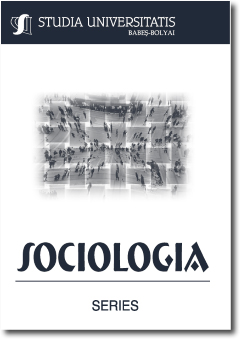THE BLACK SWANS OF GREECE’S GLOBAL COUNTRYSIDES
THE BLACK SWANS OF GREECE’S GLOBAL COUNTRYSIDES
Author(s): James P. VerinisSubject(s): Social Sciences
Published by: Studia Universitatis Babes-Bolyai
Keywords: neoliberalism; non-Greek farmers; repeasantization.
Summary/Abstract: A vast array of processes we might identify with the terms re- and de-peasantization are occurring in Greece, in conjunction with the emerging post-productivist moralities and aesthetics of European countrysides and along with the absolute lack of consensus as to what neo-rural means or how it should be managed by local, national, and EU institutions, especially in the European periphery. Rural sociologists, social geographers, anthropologists and other scholars concerned with rural Greece have long confirmed the ‘backwardness’ that has supposedly plagued it since the state's inception. More recent work has focused on how new global migrants suffer from xenophobia and exploitation in rural Greek areas. Yet my fieldwork has gradually revealed significant Greek/ non-Greek co-ethnic endeavours in ‘traditional’ small-scale agriculture that have the potential to contribute different information to a post-colonial rural Greek history. Small-scale olive farmers in semi-mountainous areas who have found themselves economically uncompetitive for example, especially in light of the current European financial crisis, have developed a variety of unprecedented relationships with many immigrants they now work with, from Albania, Romania, Bulgaria, Moldova, and Ukraine most notably. In reclaiming abandoned fields and centuries-old farm enterprises as well as collecting traditional foodstuffs that few ‘modern’ Greeks collected until recently, immigrant farmers link rural Greeks back to their agrarian lives and traditional Greek agricultural practices to new international value-added food markets for boutique or heritage products. These developments, outside the historical confines of the binary relationship between Greece and northern Europe or the United States, as alternative readings of global Greek countrysides, embody significant solutions to the most prescient problems in contemporary rural Greek communities.
Journal: Studia Universitatis Babes-Bolyai - Sociologia
- Issue Year: 59/2014
- Issue No: 2
- Page Range: 9-34
- Page Count: 26
- Language: English

